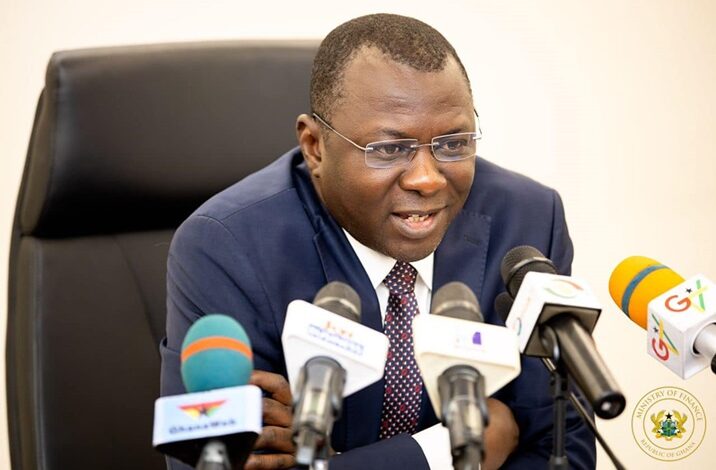Finance Minister assures of long-term financial stability

FINANCE Minister Dr. Mohammed Amin Adam, has reassured Ghanaians and investors that the government remains committed to preventing a return to debt distress following the country’s recent debt restructuring.
Speaking at the 2024 Annual Meetings of the International Monetary Fund (IMF) and the World Bank Group (WBG) in Washington, D.C., Dr. Adam described the Domestic Debt Exchange Programme (DDEP) as a “painful but necessary” step, adding that the government is focused on implementing reforms to strengthen Ghana’s financial resilience.
“The DDEP was a very painful exercise because people did not expect it. Ghanaians had to sacrifice more than anyone thought possible,” he said. “This sacrifice showed our bilateral creditors and Eurobond holders that Ghana is serious about changing its fiscal path.”
Dr. Adam explained that the government has learned valuable lessons from the sacrifices Ghanaians made during the debt restructuring process and is determined to avoid falling into unsustainable debt again. To achieve this, he outlined plans for structural reforms, including amendments to the Fiscal Responsibility Act to introduce a debt ceiling.
“We are seeking amendments to the current legislation to set a debt limit on government borrowing. Additionally, we will establish a Fiscal Council to ensure compliance with these rules,” he said.
The independent Fiscal Council will monitor the government’s borrowing and debt management, ensuring that debt levels remain within the set limits. Dr. Adam stated that the council will publish quarterly and biannual reports on Ghana’s debt levels to promote transparency and allow the public to track progress.
The finance minister highlighted that the DDEP helped accelerate agreements on external debt restructuring, resulting in significant savings. Ghana saved $12 billion through external debt restructuring with bilateral and Eurobond creditors, achieved through cancellations and debt service relief.
Meanwhile, IMANI Africa and Oxfam Ghana have called for a more empowered Fiscal Council after their recent findings showed GHS 4.9 billion in losses due to financial irregularities within the Ministry of Finance and its agencies.
Their report, the Fiscal Recklessness Index, emphasized the need for stronger systems to address inefficiencies in tax collection and to improve fiscal discipline within Ministries, Departments, and Agencies (MDAs).
Dr. Adam stressed that Ghana is committed to staying on the path of fiscal responsibility and ensuring that the painful sacrifices of its people lead to long-term financial stability.




